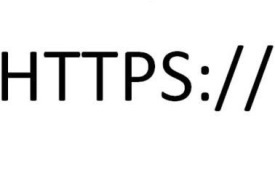What are they? What’s the difference?
Basically speaking, HTTP:// is the way a computer server and a computer browser ‘talk’. Http is the protocol by which information is carried from a web server to a web browser and vice-versa. It stands for Hypertext Transfer Protocol.
As the name suggests, in this method all the information is sent as ‘plain text’. The data is not encrypted and hence, anyone with a little flair for hacking could potentially intercept the data. Due to this, Http is no longer considered a safe method for transmission of sensitive information. Valuable information like a person’s bank accounts, addresses, social security numbers, national identity cards etc. have the potential to be compromised.

In order to fix this problem, HTTPS:// was introduced which stands for Hypertext Transfer Protocol Secure. In this system, the information is sent after being encrypted so that no one can read it.
What’s so special about HTTPS?
HTTPS uses an SSL certificate or a TSL certificate to secure your information. They stand for Secure Socket Layer and Transfer Layer Certificate respectively. Both of them utilize what is called a PKI system, also known as Public Key Infrastructure system to encrypt the files. It is kind of an asymmetric system which incorporates a public key and a private key. All data that is sent would have a public key or a private key. The web browser or the server to which the information is being sent to need to have the opposite pair of the keys in order to decrypt the information. Otherwise, anyone who tries to read the information without the appropriate key will only see weird numbers and symbols.
There are different kinds of SSL certificates available for different purposes:
1) Single Domain SSL certificates for a single domain or a subdomain. This is issued for a single domain,
2) Multiple Domain SSL certificates for a single primary domain with multiple sub-domains.
3) Wildcard SSL certificates for the whole URL of the website with unlimited sub-domains.
What are the benefits of HTTPS?
Aside from securing the valuable information, switching to HTTPS has some more perks.
- Google gives a little boost to the rankings of the websites who use HTTPS.
- People are more trustworthy and open for transactions who have HTTPS incorporated on their websites
- HTTPS supports the usage of Google’s AMP a.k.a. Accelerated Mobile Pages system, that allows faster loading in mobile and tablet devices. This provides better traffic.
Few things to do while converting from HTTP to HTTPS
- Purchase an SSL certificate and then install and configure it to your system.
- Make sure to take full back up of your website
- Update all hard internal links and re-direct external links(which you have control over) from HTTP to HTTPS.
- Update all libraries, scripts and images.
- Update all Content Delivery Network’s (CDN) SSL settings.
- Enable HSTS which would automatically switch the browser to use HTTPS.
- Update all landing pages and all paid search links
Conclusion
In an era where almost all aspects of our lives are recorded online, it becomes important to protect such information from unwanted people. For this, HTTPS is a safer way to transfer data, especially for all e-commerce and information websites who frequently deal with sensitive information.





